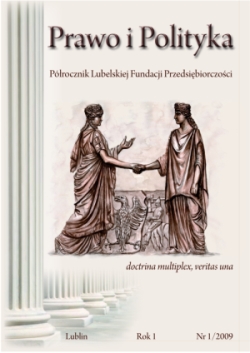Multilateralizm i unilateralizm – globalne trendy a amerykańska polityka zagraniczna
Multilateralism and Unilateralism - Global Trends and U. S. Foreign Policy
Author(s): Jolanta BryłaSubject(s): International relations/trade, Globalization
Published by: Fundacja Niepodległości
Keywords: Unilateralism; multilateralism; international organizations; globalization; legitimacy; U. S. foreign policy; interdependence; national interests; world order;
Summary/Abstract: The article explores a question of interconnection between global demand for multilateral cooperation and unilateral trends in United States policy. Multilateral cooperation is vital to cope with global problems. There is also a question of choice between unilateral and multilateral modes of acting in U.S. foreign policy. Considering the fact that after the cold war United States is the most powerful state in the world, this choice and its consequences influence the others, especially when it refers to using of power. In effect U.S. choice becomes a subject of international debate. The main thesis of this article is that multilateralism and unilateralism do not exclude each other as alternative ways of achieving foreign policy goals. There is no dichotomy between multilateralism and unilateralism – there are rather gradations between the two orientations, they can coexist as well. They can be complementary to one another and United States use one of them whenever its interests need it. No country can all the time act alone (unilateralism) in addressing global or regional challenges rather than participate in collective action (multilateralism). Various problems may need different solutions and responses. No one should expect that United States can adopt a consistent policy of unilateralism or multilateralism. One should presume instead that U.S. multilateralism will continue to be selective because such choice will serve U.S. interests the best. Practice demonstrate that whenever United States is convinced about UN Security Council or international community support it is more open to multilateral cooperation. In opposite case it chose unilateral activity if its interest are at stake.
Journal: Prawo i Polityka
- Issue Year: 2009
- Issue No: 1
- Page Range: 91-108
- Page Count: 18
- Language: Polish

